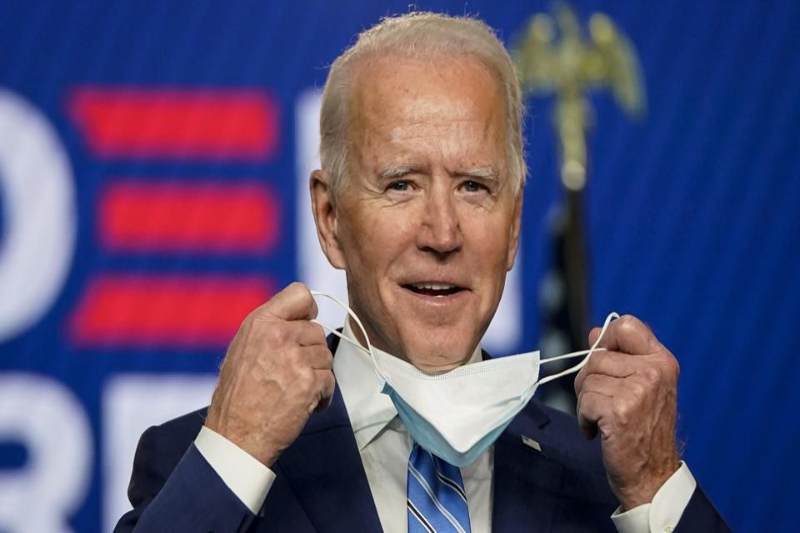
USA -Venezuela, what changes with Joe Biden
Last updated on December 21st, 2020 at 04:56 am
USA -Venezuela: Venezuelan opposition leaders and the governments supporting them have just seen their strategy to remove President Nicolas Maduro’s tyrannic regime culminating in a failure. On Sunday, in farcical elections for a new term, Maduro supporters took control of the opposition’s last remaining bastion, the National Assembly. But on the other hand, opposition leaders have been denouncing for months how the Venezuelan leader was obstructing the main opposition parties in all ways, both lawful and unlawful, by completely emptying the very meaning of the elections. That not surprisingly had a record of abstention. The parliament served as a spearhead for a coordinated international campaign to remove Maduro, promoted by the Trump administration and supported by European and Latin American democracies, seen in the president of assembly Juan Guadiò. Their champion to restore a modicum of democracy in Venezuela.
That plan, launched two years ago, sought to capitalize on the opposition’s hold on the National Assembly Opposition politicians had won the overwhelming majority during the last legislative elections, in 2015. That proved to be Venezuela’s latest credible polls. Although the regime later stripped the National Assembly of all its powers, the opposition still enjoyed the legitimacy of a duly elected government institution, albeit apparently without practical authority, and found a way to leverage it.
Maduro continued to dominate even though almost all Western countries disowned him as interlocutor and chosen the Legislative Assembly leader, Juan Guaido, as the legitimate president. After Maduro proclaimed himself the winner of a fraudulent election in 2018, the National Assembly declared the presidency vacant. And following the constitutional guidelines, appointed the head of the legislature, Juan Guaido, the legitimate interim president until fair elections.
Fifty countries soon recognized Guaido as the legitimate head of state of Venezuela. The United States waged a new “maximum pressure” campaign against the regime, including tightening sanctions, but a planned military uprising to oust Maduro did not materialize. Once again, the military power of a South American country remained faithful to the pre-established order. Perhaps because of not having too much faith in the new leader. Also, because of the direct involvement of the US. That is why the opposition forces, despite the words of circumstance, were hoping for a reappointment of Trump. It is not a mystery that Maduro was rooting for a victory for the Democrat Biden.
Trump has been a strong ally of the opposition to the Venezuelan leader. He has shown that he is determined not to back down on demand to kick Maduro out of power. Venezuelan state oil company PDVSA – the country’s economic lifeline – was also hit by US sanctions, increasing the number of Venezuelan people suffering. Biden expressed his desire to resume diplomacy with OPEC members Venezuela and Iran. That could lead to the return of their oil exports if certain conditions occur, according to Reuters.
“We are not trying to dismantle the sanctioning policy, but to enforce sanctions intelligently, aided by a multilateral effort and with specific objectives to achieve mainly free, fair, and credible elections.” Leopoldo Martinez, Biden’s campaign strategist, told Reuters in late November. The strategy managed to strengthen President Donald Trump’s good faith among large segments of Latin voters in the United States, a significant contributor to Trump’s comfortable election victory in Florida in November. It also helped galvanize support for the Venezuelan opposition among European democracies. But in its most important goal, carving a path towards a return to democracy, the strategy has made no progress.
For Juan S. Gonzalez, former US Deputy Secretary of State and former Special Advisor to Vice President Joe Biden, the elected president will stand with the Venezuelan people and democracy. In organizing a cohesive international response to the humanitarian crisis, targeting regime supporters involved in corruption and human rights violations wherever they go. Recovering assets stolen by the Venezuelan people, driving international pressure for free and fair elections. “Joe Biden is someone who advocates the use of multilateral sanctions to force the Maduro regime to restore democratic freedoms in Venezuela.” Juan S. Gonzalez said.
But for many Americans, this plan won’t work. “Yet, none of these outcomes will be achieved if Biden simply lifts economic sanctions,” Ryan Berg and José I. Hernández write today on CNN. They suggest to develop a “different sanctions strategy”: supporting effective humanitarian exemptions and using US diplomatic means to stop Maduro’s rapaciousness. That would strengthen the possibility of a democratic endgame over a bold diplomatic strategy, a better collection of options to discuss the complicated change to democracy in the South American country. The nature of Venezuela’s emergency needs US resolution and thinking outside the box.




